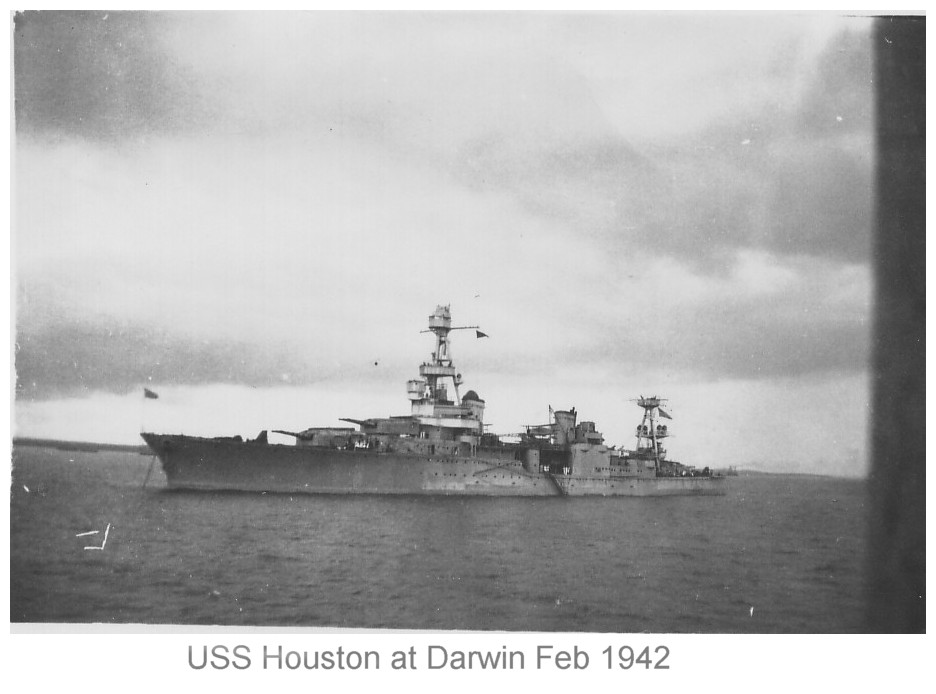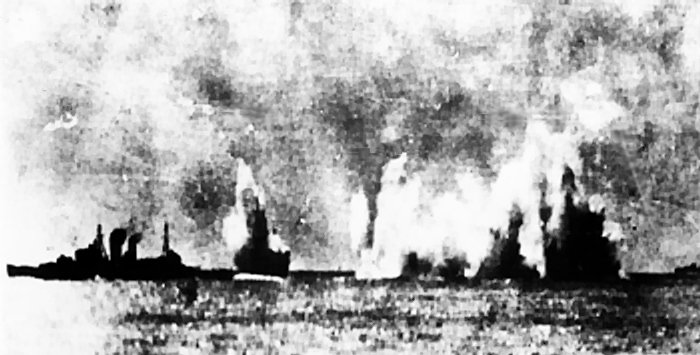I bring them back as news came out this week that should bring a pause to all Sailors - these men have been victimized by grave robbers.
Three Dutch warships sunk in the Battle of the Java Sea in 1942 have largely disappeared from the sea bed, defence minister Jeanine Hennis has told MPs in a written briefing. The wrecks of cruisers HNLMS De Ruyter and HMLMS Java and destroyer HMLMS Kortenaer were found by divers in the waters off Indonesia in 2002 and declared a war grave. However, the two cruisers have vanished, as has part of the destroyer, the minister told MPs on Tuesday. The discovery of the illegal salvage was made by divers during preparations for next year’s 75 year anniversary commemorations, Hennis said. The battle, involving Dutch, British, American and Australian ships, took place on February 27, 1942 and proved disastrous for the allies. Some 2,200 people died, including 900 Dutch nationals and 250 people of Indonesian Dutch origin.It appears that it isn't just the Dutch who have this problem;
The Guardian says it has seen 3D images, showing large holes in the seabed where HMS Exeter, HMS Encounter, the destroyer HMS Electra, as well as a US submarine, used to be.There were reports a few years ago that the grave robbers have been to the USS HOUSTON (CA-30) as well.
Experts say salvaging the wrecks would have been a huge operation.
I like to think that I am not a superstitious man, but all Sailors can be a bit superstitious and in that light I hope that those people who disturbed their graves in such a crass and thoughtless manner are brought to justice if not by man, but then by Mother Ocean.
So, in their honor, let's revisit The Battle of The Java Sea;

The Battle of the Java Sea was a major naval battle of the Pacific campaign of World War II. Allied navies suffered a series of disastrous defeats at the hand of the Imperial Japanese Navy, in actions over several days in February-March 1942.One thing I would like to see made into a movie by Clint Eastwood is the last 24 hours of the USS Houston and HMAS Perth.
...
he ABDA force consisted of two heavy cruisers (HMS Exeter, USS Houston) and three light cruisers (HNLMS De Ruyter, HNLMS Java, HMAS Perth), and nine destroyers (HMS Electra, HMS Encounter, HMS Jupiter, HNLMS Kortenaer, HNLMS Witte de With, USS Alden, USS John D. Edwards, USS John D. Ford, USS Pope and USS Paul Jones. (Doorman's flagship),
The Japanese convoy was escorted by two heavy (Nachi, Haguro) and two light cruisers (Naka, Jintsu) and fourteen destroyers (Yudachi, Samidare, Murasame, Harusame, Minegumo, Asagumo, Yukikaze, Tokitsukaze, Amatsukaze, Hatsukaze, Yamakaze, Kawakaze, Sazanami, and Ushio) under the command of Rear Admiral Shoji Nishimura. The Japanese heavy cruisers were much more powerful, armed with ten 8-inch (203 mm) guns each and superb torpedoes. The Exeter & Houston were armed only with six of these guns. While the carried nine 8-inchers, only six remained operable as her aft turret had been knocked out in an earlier air attack.
...
The main ABDA naval force had been almost totally destroyed: 10 ships and approximately 2,173 sailors had been lost.
Gives me shivers to this day - thought I have read the account any number of times.HMAS Perth and USS Houston in Tandjong Priok
These ships were there as a result of Admiral Doorman's final order in the Battle of the Java Sea. They arrived in the morning of February 28th, and immediately tried to obtain oil and ammunition. The could get the first, although not without effort, but ammunition, that they so badly needed, was not available. At this time, the PerthHouston only 50 rounds. If they got into a fight, it was sure they wouldn't last long. They were battleready that night and left the harbor at about 1900 hours, and Captain Waller, the highest in rank, decided to sail directly to Sunda Strait, without making a curve around the invasion forces as Admiral Helfrich had ordered. This was the shortest way, but also the most dangerous. The Japanese had landed in the Bantam Bay on the north coast of Java, at Merak in Sunda Strait and at Eretan Ewan, east of Tandjong Priok. The two allied cruisers had to deal with the escorting squadron, which was devided into three groups: One was of the invasion force for Merak and consisted of the light cruiser Yura and four destroyers, the second was the invasion force at Bantam Bay and consisted of 1 cruiser and 11 destroyers and finally, the support group in the Java Sea, with the light carrier Ryujo, the heavy cruisers Mogami, Mikuma, Kumano and Suzuya. Mikuma and Mogami were cruising very close to the landingsite in Bantam Bay. There was also an invasion force at Eretan Ewan, but that one took no part in the final destruction of the Allied ships. The Perth and Houston, as said, sailed at top speed directly to Sunda Strait and encountered at about 22.30 the Japanese destroyer Fubuki, which guarded the Eastern approaches. She fired her 9 Long Lance torpedo's at about 3000 yards and retreated. The cruisers now saw the invasion force in the Bantam Bay and fired on the several dozen transports there. At that time, there were two destroyers in the bay and those immediately tried to make smoke screens to protect the transports. Nevertheless, the Allied cruisers scored hits on the transports, but no ship was sunk. At this time, stronger Japanese forces were closing in on the small squadron, but the only result was hits on Japanese warships and none on the Allied. This was soon to change. Japanese destroyers fired about 28 torpedoes, of which luckily none was a hit. The Perth and Houston replied which rapid gunfire and in the case of Perth, also torpedoes and managed to score several hits on the destroyers, but were themselves also slightly damaged by gunfire. But the heavy cruisers MogamiMikuma arrived at the battleground. Their 8 inch grenades surrounded the Perth and Houston and they also fired torpedoes. At about 23.20, the allied cruisers were out of ammo and now could only hope to reach safer waters by high speed. Japanese torpedoes were flying all over the battleground, and scored one hit on Perth, later followed by another two. This resulted in heavy loss of life, especially in engineering. Waller ordered to abandon ship, but the Perth received her fourth hit, which was too much for her. She sank and took half the crew with her. By this time, also the Houston had received several hits, including vital hits. A whole gun salvo hit the aft engine room where the high pressured steam killed almost everyone. The central fire control system was down along with one of the forward 8 inch-turrets. At about 00.20, the last operational turret was hit and Captain Rooks ordered to flood the forward magazines. Without the heavy batteries, she now fought a useless battle. But she still had her 5-inch guns and her machineguns and continued the fight. At about 00.30 three torpedoes hit the Houston on her starboard side. The water entered the ship from all sides and Rooks ordered to abandon ship. Captain Rooks died when he was hit by a part of a machinegun foundation. He died in the arms of his officers. Commander Roberts noticed that the Houston still had a lot of speed and decided to wait with abandoning the ship. The guns were still firing at this time, but the ship was lying dead in the water and the Japanese destroyers took the decks under fire with their machineguns. The Houston sank and took two thirds of it's crew with her. Only about 368 of a crew of over a 1000 were taken prisoner.
Besides going over the details again (you can do that some more at the links above), I would like this chance to personalize it. You need to see the very personal, one man's son's story from the HMS Exeter(you remember her). Click here to see it. Nicely done.











No comments:
Post a Comment